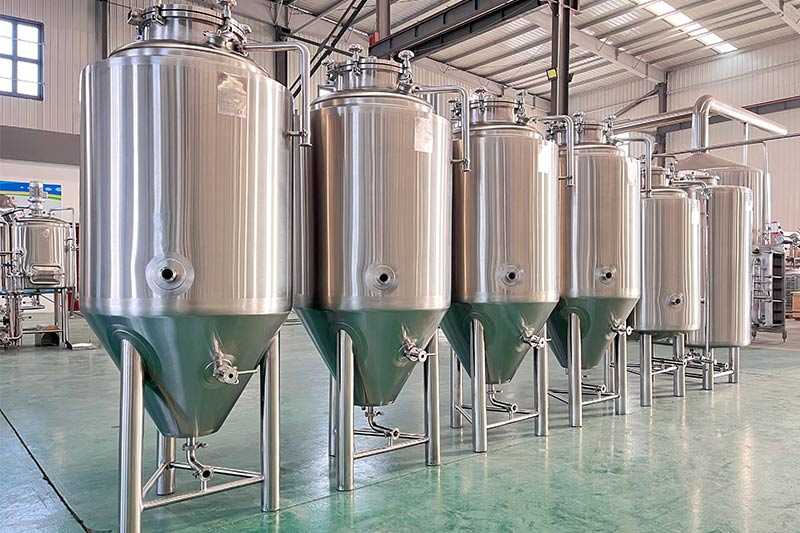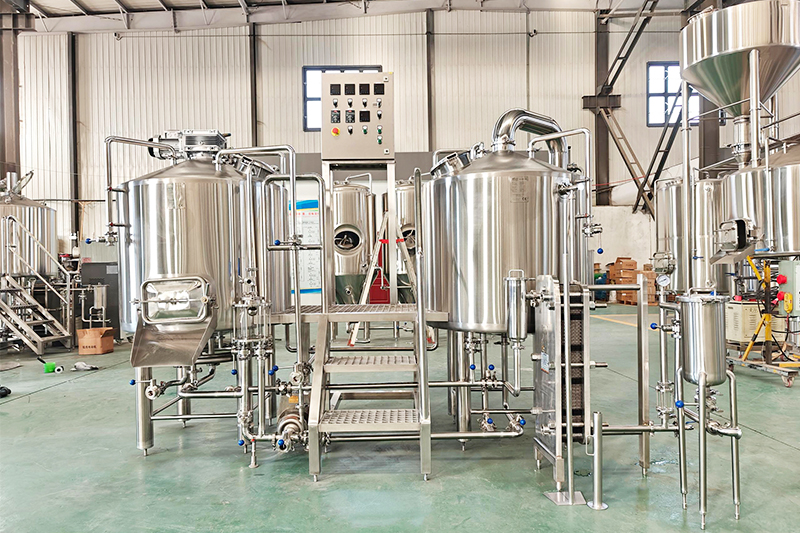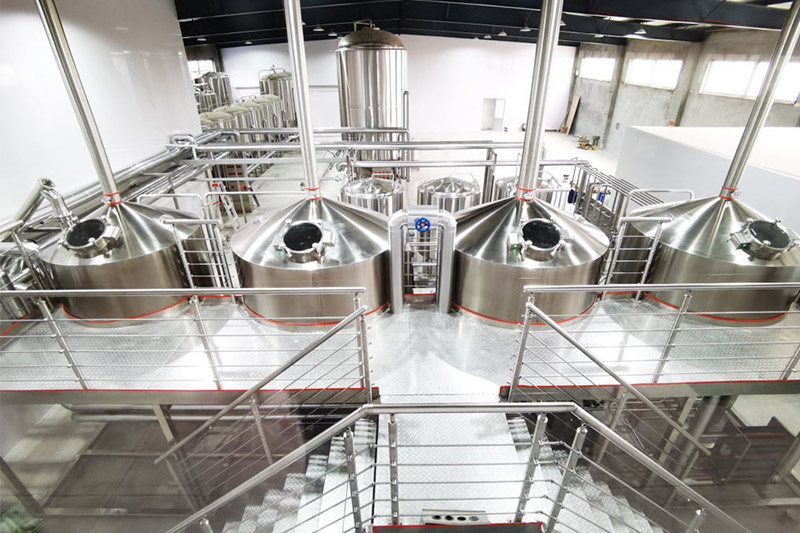Starting a brewery is an exciting journey filled with passion for crafting unique flavors of beer. Whether you’re a seasoned brewer dreaming of expanding your craft or an entrepreneur entering the craft beer industry, understanding the essential brewing equipment is crucial. This comprehensive guide will walk you through everything you need to know about the equipment required to start a brewery successfully. Let’s dive into the world of brewing and explore the tools that will turn your vision into reality.

What Equipment Do You Need to Start a Brewery?
Embarking on the journey to start a brewery requires a clear understanding of the essential equipment. The right brewing equipment ensures efficiency, quality, and consistency in your brew.
Essential Brewing Equipment List
- Brewhouse System: Includes the mash tun, lauter tun, brew kettle, and whirlpool.
- Fermentation Tanks: Vessels where the wort transforms into beer through fermentation.
- Brite Tanks: Used for carbonation and storing finished beer before packaging.
- Glycol Chiller: Controls the temperature of the fermentation tanks.
- Heat Exchanger: Cools the wort quickly after boiling.
- Malt Mill: Crushes the malt to extract sugars efficiently.
- Kegs and Bottles: For packaging and distributing your brew.
- Cleaning Equipment: Ensures sanitation throughout the brewing process.
Investing in high-quality brewery equipment not only enhances the quality of your beer but also streamlines operations.
Explore our Microbrewery Equipment for quality brewing
How to Choose the Right Brewhouse System?
The brewhouse is the heart of your brewery, where the initial stages of brewing take place.
Components of a Brewhouse
- Mash Tun: Where grist and water mix to convert starches into fermentable sugars.
- Lauter Tun: Separates the liquid wort from the grain solids.
- Brew Kettle: Boils the wort, adding hops and other ingredients.
- Whirlpool: Clarifies the wort by removing trub and hops.
Factors to Consider
- Size and Capacity: Match your production goals.
- Material: Stainless steel is preferred for durability and hygiene.
- Automation Level: Decide between manual, semi-automated, or fully automated systems.
A well-designed brewhouse enhances efficiency and the quality of your brew.
Check out our 2 Vessel Brewhouse systems
What Role Do Fermentation Tanks Play?
Fermentation tanks are where the magic happens—the wort becomes beer.
Importance of Fermentation Tanks
- Temperature Control: Precise control is vital for yeast activity.
- Variety: Different styles, such as conical or cylindrical, for various brewing processes.
- Capacity: Should align with your brewhouse output.
Features to Look For
- Glycol Jackets: For efficient cooling.
- Pressure Valves: Maintain safe pressure levels.
- Ease of Cleaning: Ensures sanitation.
Investing in quality fermentation tanks is essential for producing consistent, high-quality beer.
Discover our Beer Fermentation Tanks
Why Is a Mash Tun Essential in Brewing Equipment?
The mash tun is where the extraction of sugars from grains occurs.
Function of a Mash Tun
- Mixing: Combines crushed malt with hot water.
- Conversion: Enzymes break down starches into fermentable sugars.
- Temperature Maintenance: Consistent heat is crucial.
Selecting a Mash Tun
- Size: Based on batch volume.
- Insulation: Retains heat for optimal conversion.
- Material: Stainless steel for longevity.
A reliable mash tun ensures the efficiency of your mashing process, affecting the overall quality of your brew.
How Does a Heat Exchanger Enhance the Brewing Process?
A heat exchanger rapidly cools the wort, preparing it for fermentation.
Benefits of a Heat Exchanger
- Efficiency: Quickly brings the wort to yeast-pitching temperature.
- Energy Saving: Recovers heat for other uses.
- Improved Quality: Reduces risk of contamination.
Types of Heat Exchangers
- Plate Heat Exchangers: Compact and efficient.
- Tube Heat Exchangers: Durable and easy to clean.
Implementing a heat exchanger optimizes your brewing process and maintains the integrity of your brew.
Explore our Commercial Brewery Equipment
What Is the Importance of a Glycol Chiller?
Temperature control during fermentation is crucial, and a glycol chiller provides that precision.
Role of Glycol Chillers
- Consistent Cooling: Maintains optimal temperatures for yeast activity.
- Multiple Tank Cooling: Allows for individual tank control.
- Energy Efficiency: Modern units are designed to conserve energy.
Having a glycol chiller is essential for producing consistent and high-quality beer.

How Do Kegs and Bottles Fit into the Equipment List?
Packaging is the final step in getting your brew to customers.
Kegs
- Benefits: Ideal for bars and taprooms.
- Varieties: Sizes range from mini-kegs to full-size.
- Maintenance: Regular cleaning is necessary.
Bottles and Cans
- Flexibility: Great for retail distribution.
- Branding Opportunity: Labels and designs enhance brand recognition.
- Equipment Needed: Filling and sealing machines.
Investing in packaging equipment ensures your beer reaches consumers in perfect condition.
Learn about our Beer Filling Machines
Should You Include a Brite Tank in Your Brewing Equipment?
A brite tank is used for the final conditioning of beer.
Functions of a Brite Tank
- Carbonation: Adds the fizz to your beer.
- Clarification: Allows sediments to settle.
- Storage: Holds beer until packaging.
Advantages
- Improved Quality: Enhances taste and appearance.
- Efficiency: Streamlines the production process.
Including a brite tank in your setup can significantly elevate the quality of your final product.
How to Source High-Quality Brewing Equipment?
Partnering with reliable brewing equipment manufacturers is key.
Tips for Sourcing Equipment
- Research Suppliers: Look for experience and reputation.
- Customization: Find suppliers that offer tailored solutions.
- After-Sales Support: Ensure they provide installation and maintenance services.
We pride ourselves on being a leading brewery equipment supplier, offering comprehensive solutions to help you start a brewery successfully.
Contact us for Brewing Equipment Solutions
What Is the Role of Yeast and How Do You Manage It?
Yeast is a living organism crucial for fermentation.
Importance of Yeast Management
- Strain Selection: Different strains produce different flavors.
- Storage: Proper storage maintains viability.
- Propagation: Growing yeast cultures for consistent pitching rates.
Proper yeast management is essential for producing the desired flavors in your beer.
How Can a Malt Mill Improve Your Brew?
A malt mill grinds the grains, making starches accessible.
Benefits of Using a Malt Mill
- Efficiency: Improves sugar extraction.
- Customization: Control over grind size.
- Freshness: Milling on-demand preserves flavors.
Including a malt mill in your equipment lineup enhances the efficiency of your brewing process.
FAQs About Brewing Equipment
At a minimum, you’ll need a brewhouse, fermentation tanks, glycol chiller, heat exchanger, kegs or bottling equipment, and cleaning systems.
Costs vary widely based on capacity and automation but expect to invest between $100,000 to $1 million for a professional setup.
Yes, but ensure it’s in good condition and meets current health and safety standards.
Using stainless steel is crucial for durability and hygiene, preventing contamination.
Yes, you must obtain federal and local licenses, including permits related to alcohol production and sales.
Conclusion
Starting a brewery is a significant undertaking that requires careful planning and investment in the right brewing equipment. From the mash tun to the brite tank, each piece plays a vital role in crafting exceptional beer. By understanding the equipment you need and partnering with a reputable supplier, you’re well on your way to turning your brewing dreams into reality.
Key Takeaways
- Identify Essential Equipment: Understand what you need to start your brewery.
- Invest in Quality: High-quality brewery equipment ensures better beer and longevity.
- Partner with Experts: Work with experienced suppliers for support and guidance.
- Plan for Growth: Choose equipment that can scale with your business.
- Focus on Quality Control: Proper equipment leads to consistent and high-quality brews.
Ready to take the next step in your brewing journey? Contact us today to discuss how we can provide the perfect brewing equipment for your needs.

